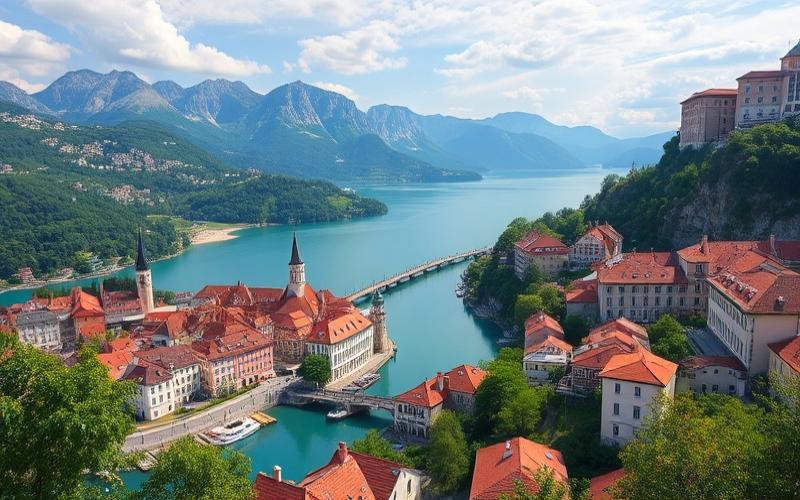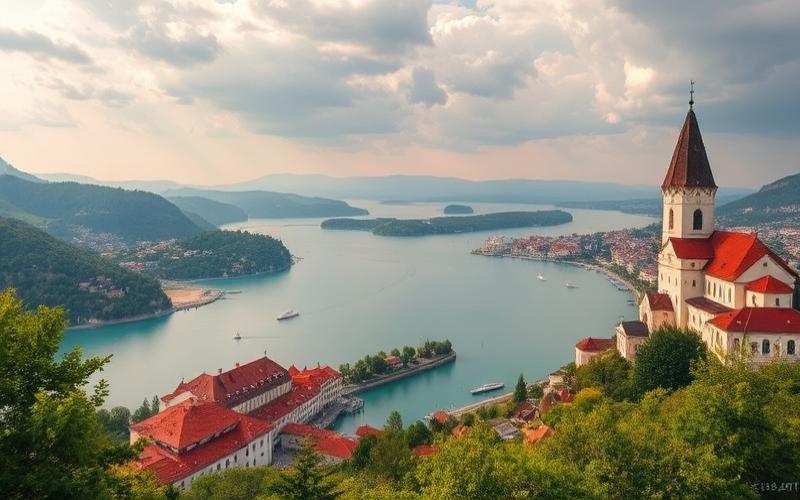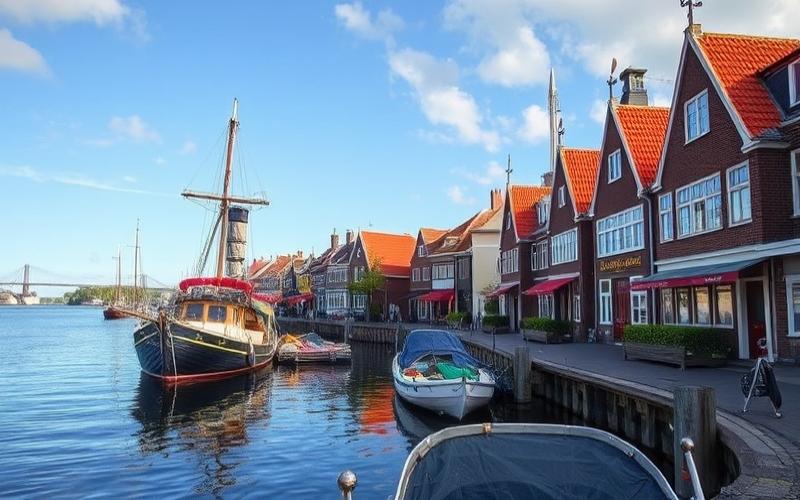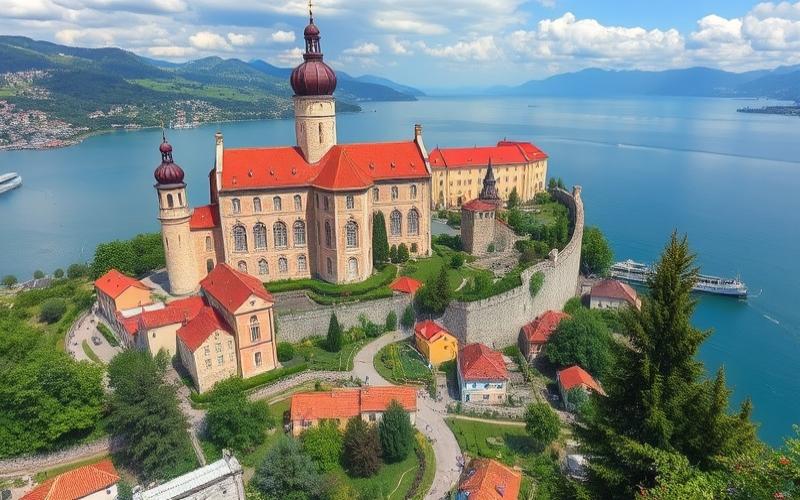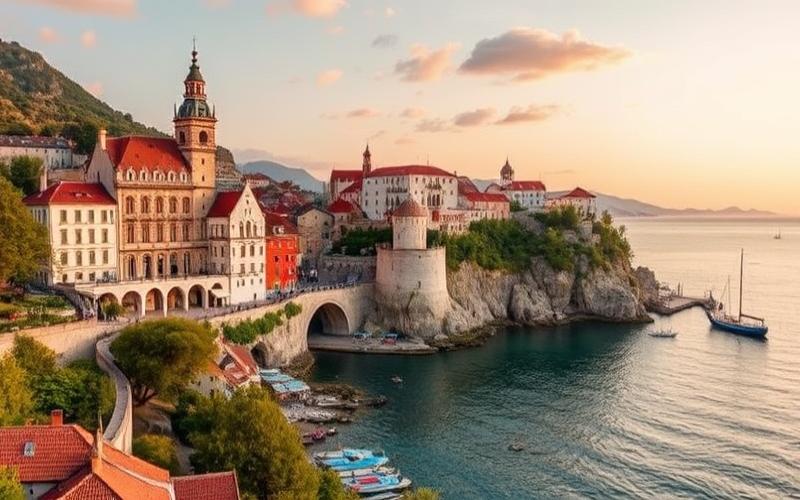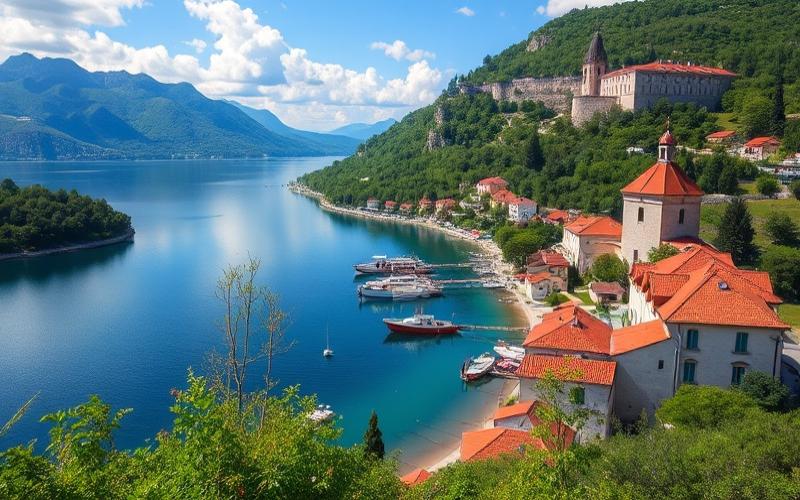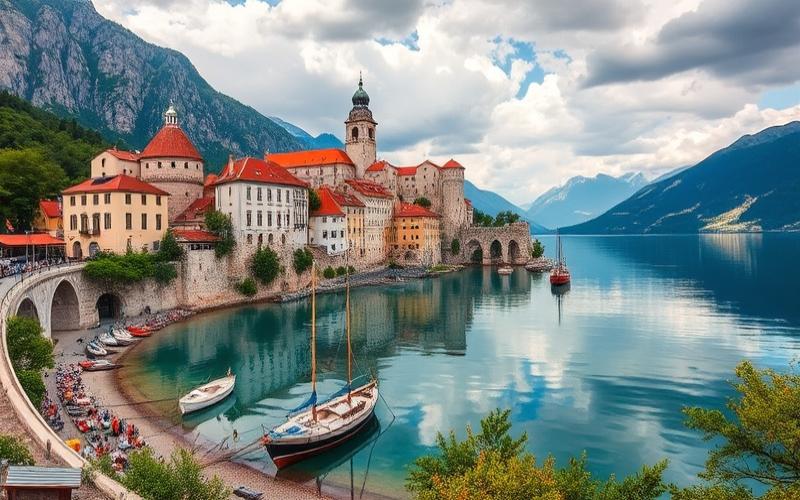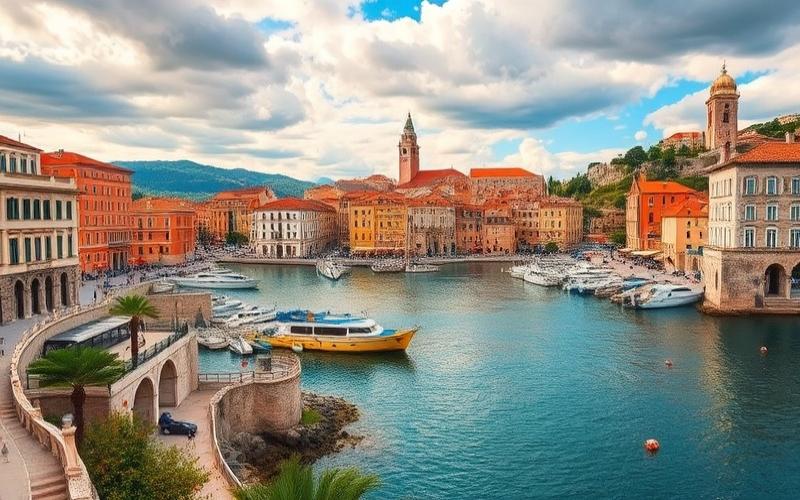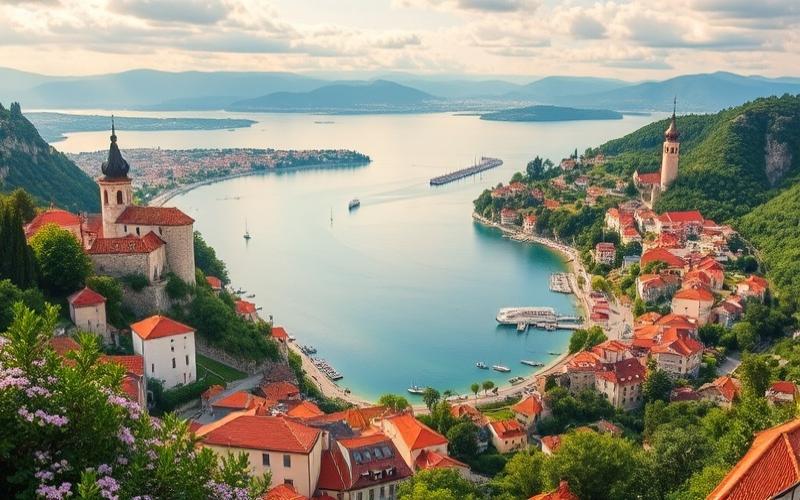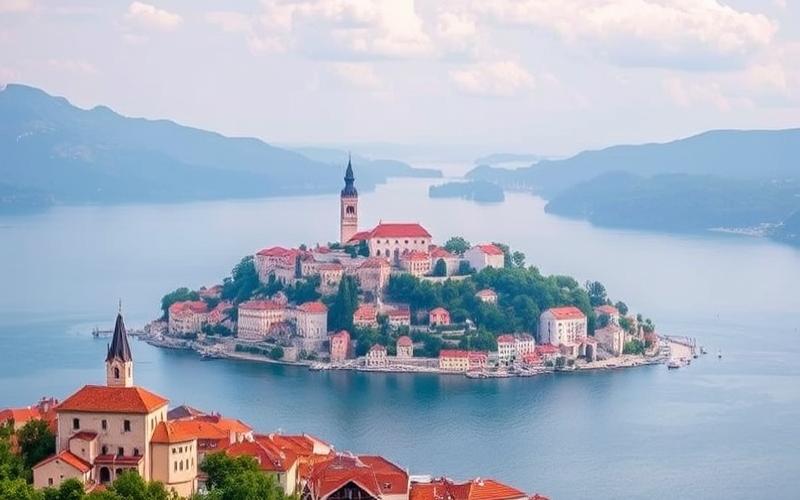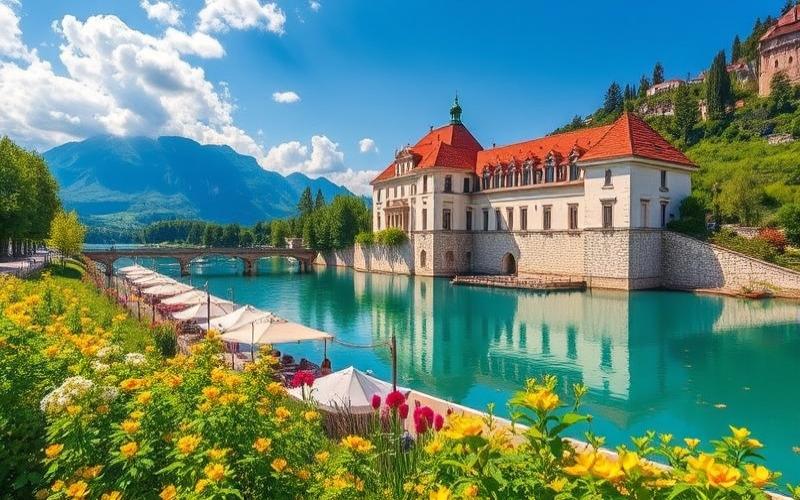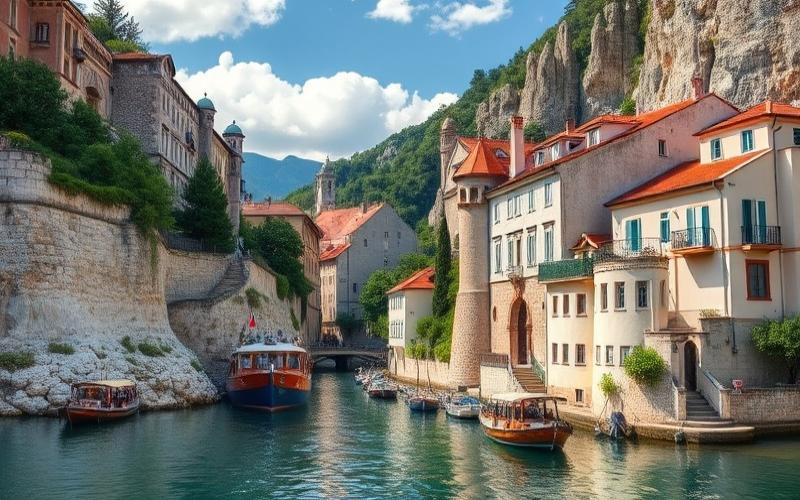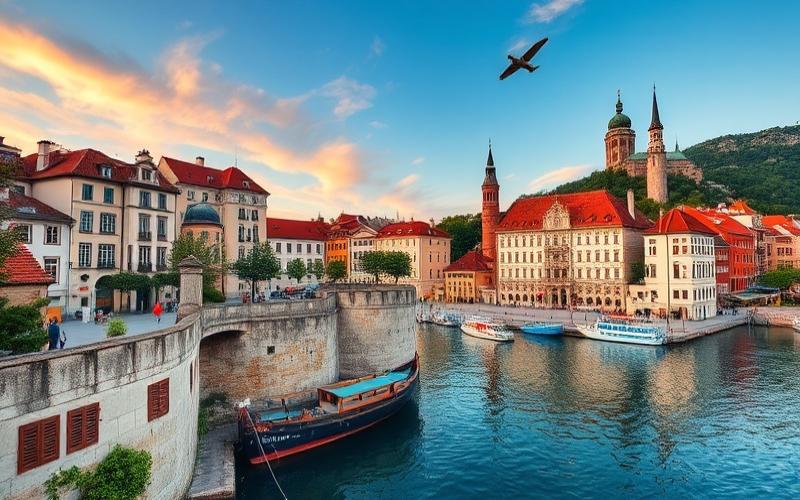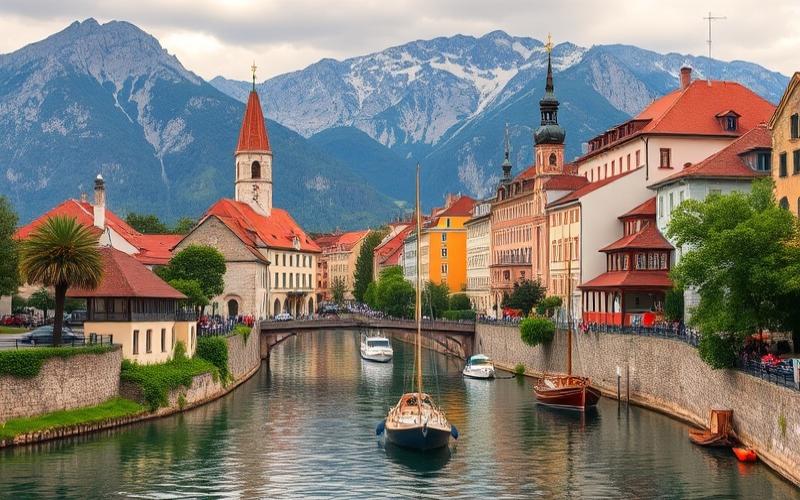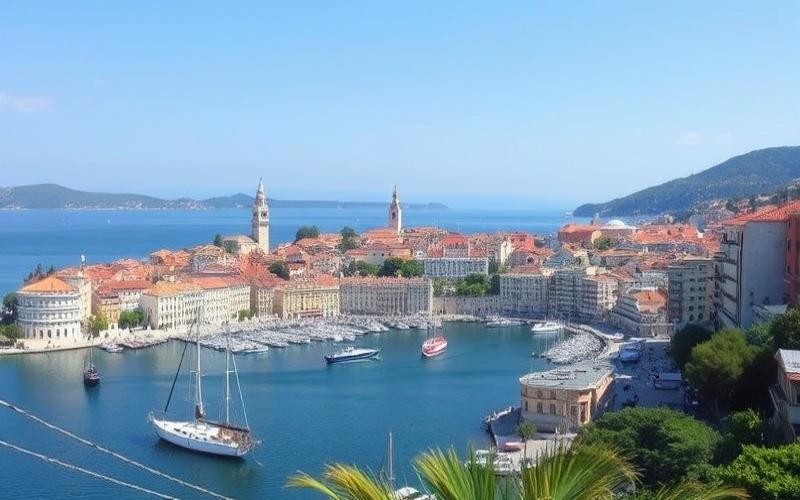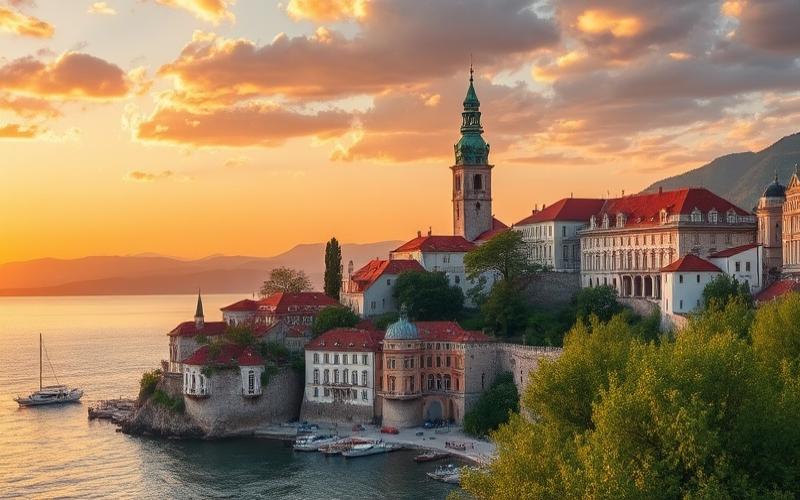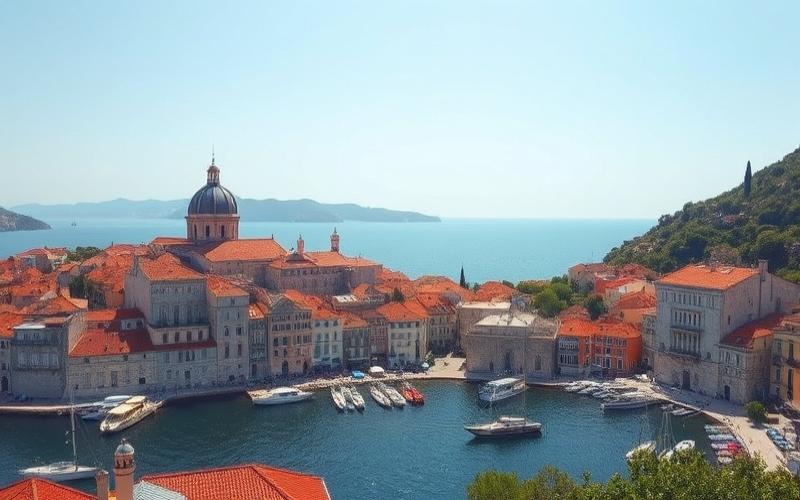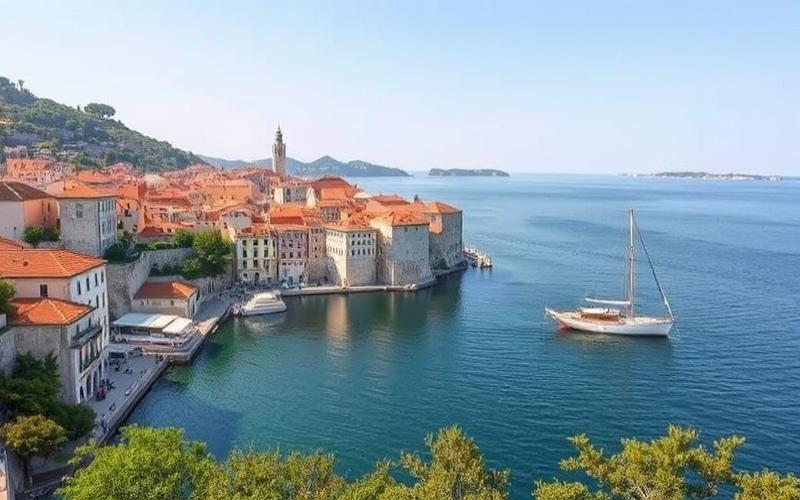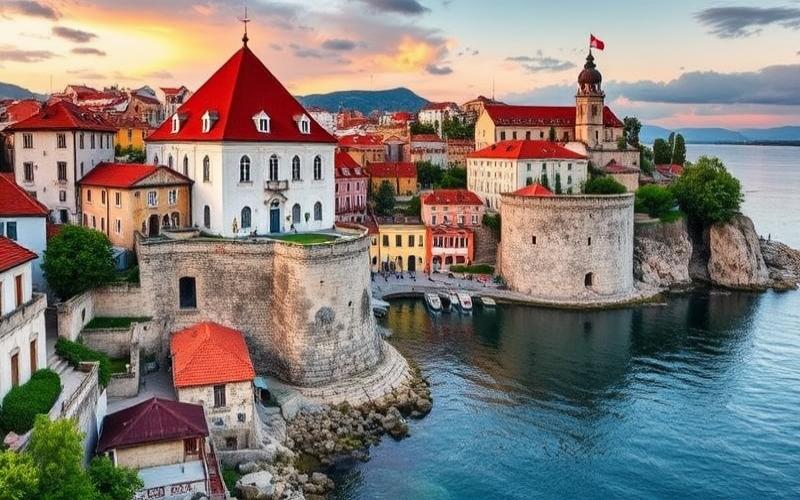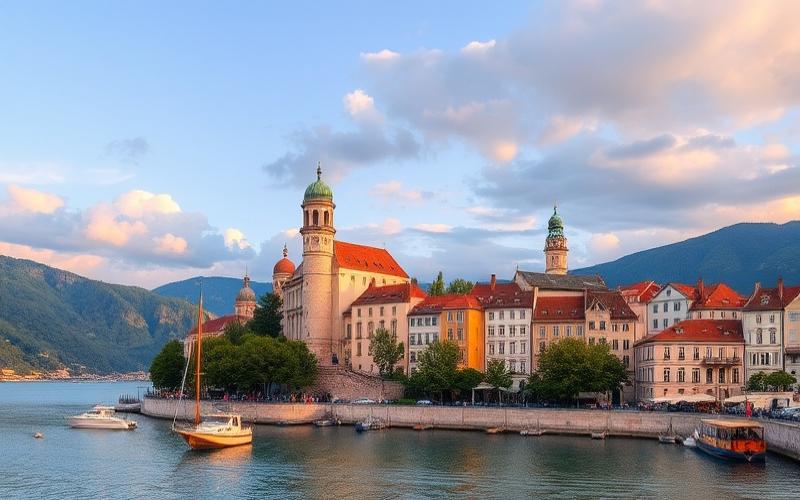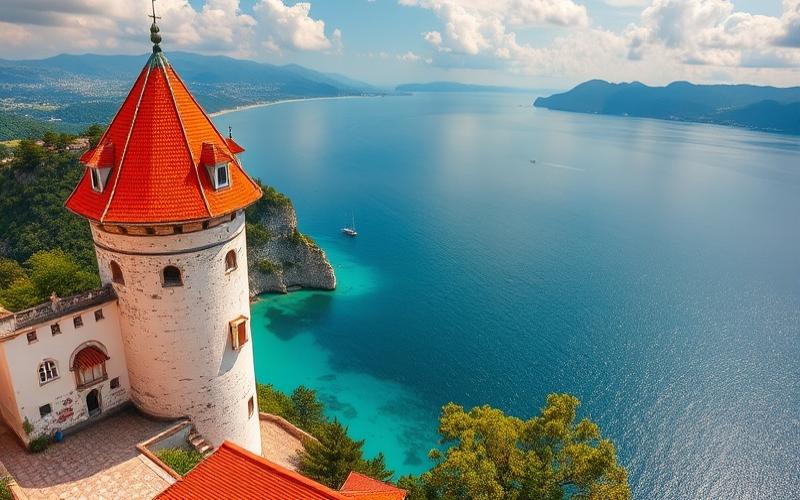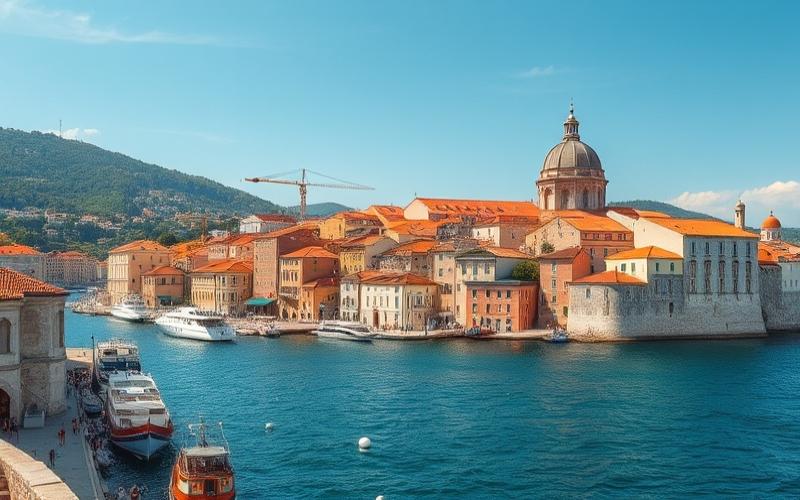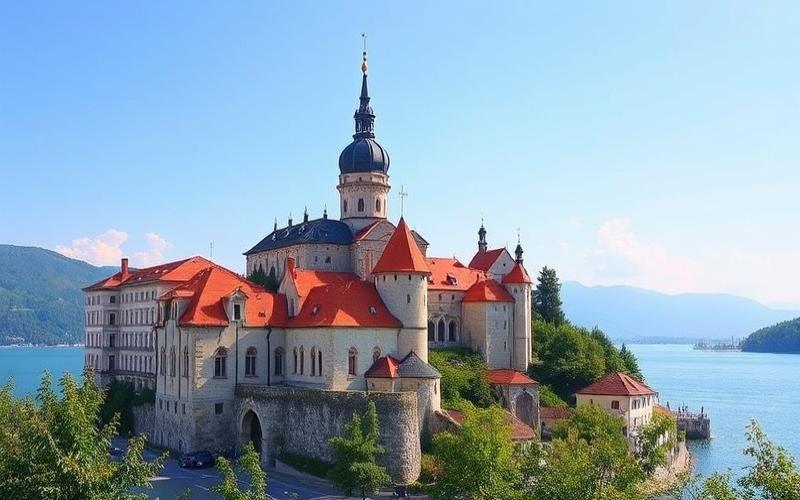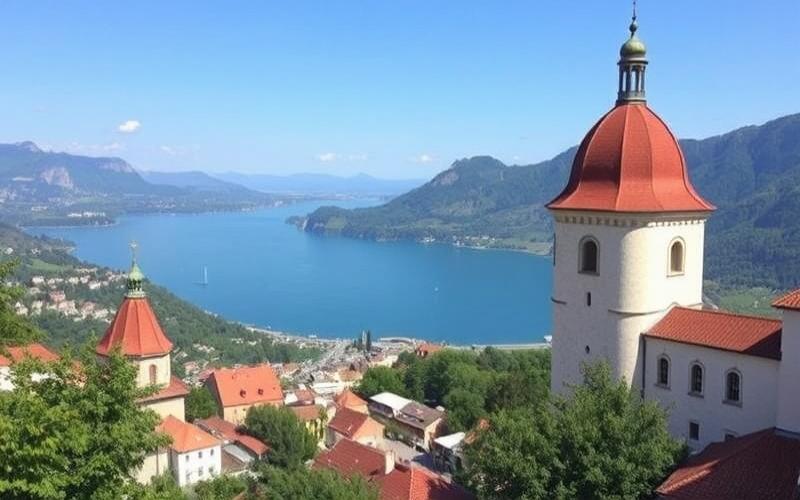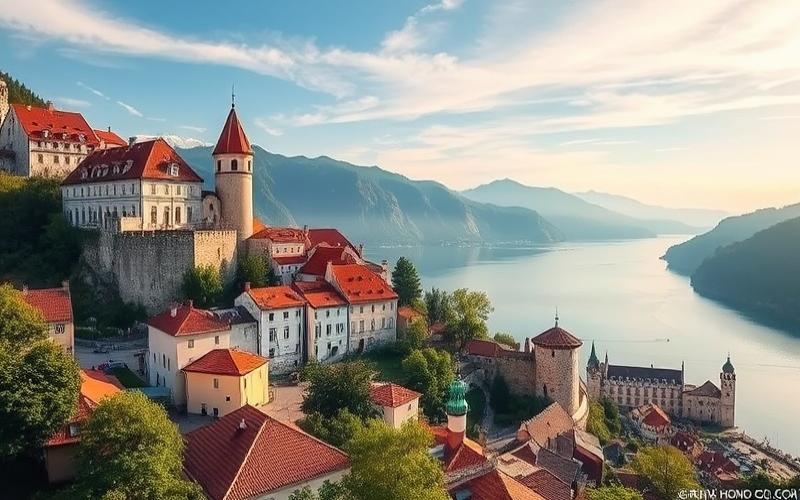
 Published on and written by Cyril Jarnias
Published on and written by Cyril Jarnias
Purchasing property in Croatia offers an enticing blend of stunning landscapes and investment potential, but securing a favorable deal requires a well-designed strategy.
With a real estate market offering both luxurious seaside homes and historic city apartments, knowing how to navigate cultural and legal specifics is essential to securing the best deal.
By understanding negotiation strategies and knowing how to identify hidden opportunities, you can transform this purchase into much more than just a summer dream.
Negotiate Like a Pro: Key Steps to Successfully Purchase Property in Croatia
Thorough preparation is essential for any successful real estate negotiation in Croatia. Before even making an offer, conduct comprehensive research on the local market: analyze price trends, compare regions (coast, tourist cities like Dubrovnik or Split), and stay informed about the rapidly growing foreign demand. For example, between 2020 and 2025, prices increased by approximately 74% nationwide, with even more significant increases along the coast. Seaside properties remain highly sought after by foreigners and often command above-average national values.
List of key elements to prepare:
- Comparative analysis of price per square meter in your target area
- Tracking annual trends in the Croatian real estate market (see table below)
- Identifying undervalued neighborhoods or property types with lower demand
- Monitoring legislation regarding purchases by non-residents
| Year | Annual Growth | Average Price €/m² |
|---|---|---|
| 2020 | +6.45% | ~1,630 |
| 2022 | +17.3% (peak) | |
| 2024 | +10.1% | ~2,834 |
| June ’25 | ~10% |
Developing a negotiation strategy
To maximize your chances:
- Determine your priority objectives: specific location, type of property sought.
- Set a realistic maximum budget, accounting not only for the purchase price but also additional costs (notary, taxes).
- Anticipate cultural or legal obstacles, such as certain expectations regarding high initial deposits or local specifics in contract drafting.
List of strategic elements:
- Prepare negotiation room
- Study the average time a property stays on the market in your target segment
- Research common Croatian practices during offers and counteroffers
Approach towards real estate agents and sellers
To effectively approach a real estate agent or private seller:
- Highlight your strengths: pre-approved financing, flexibility to sign quickly.
- Remain open to discussing secondary aspects (furniture included/excluded), which can facilitate compromise.
Practical tips:
- Be respectful but firm during initial dialogue.
- Ask many questions to uncover any potential hidden information.
- Demonstrate thorough knowledge of the local market to avoid any attempts at artificial price inflation.
Patience & dynamic management
It’s crucial to know when to alternate between firmness and flexibility during negotiation. Patience can sometimes lead a time-pressed seller to accept a lower price; conversely, pushing too hard can break off all contact.
Key behavioral points:
- Never show eagerness to close the deal
- Know when to ease pressure if multiple buyers are present
- Be prepared to walk away from opportunities that don’t perfectly match your criteria
Engaging a local expert
Croatian legislation can vary significantly by region; using the services of a specialized lawyer or local real estate consultant is highly recommended for:
List – Major contributions of a local expert:
- Thorough verification of land title
- Reliable translation/adaptation of official documents
- Assistance throughout the administrative process until final transfer
Final contract management
Before final signing:
Essential points before contractual commitment:
- Carefully read every clause in the preliminary and final contract
- Verify that all verbal agreements are formalized in writing
- Ensure there are no restrictions or debts encumbering the property
Rigorous preparation combined with a strategic approach will not only secure your property purchase in Croatia but also potentially result in a favorable transaction in this attractive market.
Good to know:
To successfully negotiate your property purchase in Croatia, preparation is essential. Start with thorough research of the local market and current trends to avoid being caught off guard. Developing a solid negotiation strategy involves clearly defining your objectives, knowing your maximum budget, and understanding the cultural and legislative nuances that could influence transactions. When approaching real estate agents and sellers, highlight the strengths of your offer while remaining open to flexibility to build a trusting relationship. Patience is crucial; know when to apply or ease pressure to achieve your goals without compromising the deal. Consider consulting a local expert, such as a lawyer or real estate consultant, to navigate formalities like contract review, and meticulously reread every document before signing to avoid any unpleasant surprises later.
Mastering the Croatian Real Estate Market: An Essential Guide
The Croatian real estate market is characterized by sustained growth, driven by international demand, a dynamic tourism sector, and a robust national economy. Prices have been rising sharply since 2023 (+18% for apartments), with significant variations between regions.
| Region | Average Apartment Price (€/m²) | Characteristics |
| Dalmatia | 3,000 – 7,000 | High tourist demand, luxury villas |
| Istria | 2,500 – 5,000 | Coastal apartments, houses needing renovation |
| Zagreb | approx. 2,000 | Residential properties, relative stability |
Popular types of real estate properties:
- City apartments (Zagreb)
- Villas and single-family homes on the coast
- Properties needing renovation in tourist areas
- New properties focused on energy efficiency
Legal and economic specifics unique to Croatia:
– Facilitated access for foreign citizens due to integration into the Schengen Area.
– Evolving taxation: real estate tax increases planned for 2025.
– Attractive “digital nomad” visa for international investors seeking connected furnished rentals.
For investing as a foreign citizen:
- Verify purchase eligibility based on nationality (most European nationals can purchase without major restrictions).
- Use a local specialized lawyer to validate the property’s legal compliance.
- Ensure the property has a clear title of ownership (“vlasnički list”).
- Account for additional costs (acquisition tax ~4%, notary fees).
Negotiation strategies adapted to local practices:
– Prefer a direct but respectful approach; negotiate especially during the off-tourist season when pressure is lower.
– Visit multiple properties to establish an accurate comparison; present a reasoned offer based on concrete examples from the local market.
Practical tips during negotiations:
– Use reputable agencies that know the area well and have reliable networks with local sellers.
Reliable resources for foreign buyers/investors:
– Recognized local agencies: Broker Real Estate, Adrionika
– Specialized platforms with multi-criteria filters to target region/price/property type
– adrionika.com
– broker.hr
Key points to remember:
Seasonality strongly impacts both prices and availability.
Renovations often add value but require vigilance on the building’s legal status.
Negotiating outside the summer period maximizes your chances of getting a better price.
Practical checklist before purchase:
- Verify access to modern infrastructure if purchasing outside major cities or the coast
- Confirm existence/validity of building permits for any new construction or major renovation project
Good to know:
The Croatian real estate market has legal specifics to be aware of, notably the necessity for foreign citizens to obtain authorization from the Ministry of Justice to purchase property, except under certain circumstances. Economically, the real estate market shows continuous growth, with significant price variations between the prized Dalmatian coast for its landscapes and tourism, Istria with its Mediterranean charms, and Zagreb, the dynamic capital. Apartments and houses by the sea are particularly popular, although traditional Dalmatian houses also attract investor attention. Current trends highlight increased demand for seasonal rental properties, especially in tourist areas. In terms of negotiation, it is advisable to demonstrate patience and respect for local customs, such as taking time to build good relationships with selling owners. Potential buyers can turn to reputable agencies such as Opereta or Crozilla, or use platforms like Njuškalo for reliable online searches.
Foolproof Strategies for Getting the Best Price
Analysis of current trends in the Croatian real estate market
The Croatian real estate market continues to experience marked growth, with an increase of approximately 10% per year in 2025. Since 2020, prices have risen by nearly 74% nationwide, and the average price per square meter has reached approximately 2,834 € in 2025. Coastal regions—notably Dubrovnik, Split, and Istria—show the strongest increases, with particular appeal for seaside apartments where foreign demand remains very high. Istria County is especially recommended for its tourist rental potential and long-term stability.
| Region | Average Price per m² (2025) | Trend | Investment Attractiveness |
| Zagreb | ~2,600 € | Strong increase | Good |
| Istria | ~3,000 € | Stable increase | Excellent |
| Split/Dalmatia | ~3,090 € (coast) | Very strong increase | Excellent |
| Dubrovnik | >3,200 € (city center) | Very strong increase | Very good |
Demand from international investors helps maintain the upward momentum in these areas.
In-depth research on average prices
To get the best price, it is essential to:
- Systematically compare average prices of similar properties in the target area.
- Use local or international real estate portals to analyze recent trends.
- Check if your target property falls in the high or low range of the local market.
Rigorous analysis helps avoid overvaluation and provides a strong argument during negotiations.
Using an experienced local real estate agent
Engaging a local professional offers several advantages:
- Access to precise knowledge about the neighborhood and its prospects.
- Legal support on property compliance and administrative assistance.
- Mastery of cultural subtleties that can influence negotiation outcomes.
Local agents often have unpublished market information (“off market”), which can provide access to better opportunities.
Effective negotiation strategies
To maximize your chances:
- Propose an initial lower price, leaving room to reach the desired amount after negotiation.
- Be prepared to concede on less essential aspects (furniture included/excluded, key handover timeline…) to obtain better overall value.
- Prepare your arguments with recent data from the local market.
Practical list:
- Never show emotional attachment to the desired property too quickly
- Set a maximum ceiling before any discussion
- Remain flexible but firm on your priorities
Impact and optimal management of exchange rates
For international buyers using a currency other than the euro:
Regularly monitor currency fluctuations: even a minor variation can represent thousands of euros saved or lost depending on when you make your international transfer.
Tip:
Use a specialized service or lock in a rate via contract to secure your budget against unexpected variations.
Subtle tactics during viewings
Always maintain your position:
- Explicitly show interest in multiple properties so each seller feels they must outperform a potential competitor
- Do not immediately reveal all your intentions or financial conditions
- Always ask if there are already other serious offers
This strengthens your bargaining power during final discussions.
Ongoing regulatory monitoring
Stay informed about:
- Laws governing purchases by foreigners
- Local tax developments applicable to non-residents (property tax/tourist tax…)
- Administrative changes related to real estate transactions post-euro/EU adoption
A good understanding significantly reduces any future legal risk.
Smartly leveraging the off-season
Buying outside the summer season offers various advantages:
- Less competition from other foreign buyers,
- Greater availability from sellers,
- Increased potential to obtain additional discounts or favorable conditions,
Initiating your search between October and March statistically maximizes the accessible quality/price ratio.
Good to know:
In Croatia, to get the best price when purchasing property, start by analyzing current trends; coastal regions or Zagreb are often considered profitable. Conduct thorough research to know the average prices of similar properties in the target areas. Engaging a local real estate agent is essential, as they possess valuable knowledge about the market and negotiation strategies. Consider proposing an initial purchase price that is lower to allow for adjustments, and be prepared to concede on certain aspects to optimize overall value. International buyers should account for exchange rates to take advantage of currency fluctuations, while showing interest in multiple properties can strengthen your negotiation position. Stay informed about local laws and regulations and prioritize purchases during the off-season to reduce competition.
Pitfalls to Avoid During Your Real Estate Transaction in Croatia
Main mistakes to avoid during a real estate transaction in Croatia:
- Omitting verification of the owner’s legitimacy and property documents
- Always verify the property’s registration in the land registry. Registries can be outdated or incomplete, making it imperative to use a specialized lawyer to analyze titles and detect potential hidden encumbrances or third-party rights not visible without thorough checking.
- Request an updated registration certificate.
Practical tips: Never rely solely on the seller’s verbal statements. Demand the official land registry extract as well as all building permits related to the property.
- Neglecting compliance with local real estate laws
- Many properties, especially rural ones, are sometimes built without proper permits or are non-compliant with urban plans.
- Risks: Potential legal obligation to demolish illegal structures, refusal to register the property.
Tip: Systematically verify urban planning compliance and request all administrative documents from local authorities before signing.
- Underestimating the importance of the preliminary contract (‘predhodni ugovor’)
- This contract must contain all essential clauses to protect the buyer. It is usually drafted in Croatian (and English), requiring official translation if needed.
- Common mistake: Forgetting important clauses that limit your recourse once the contract is signed.
- Ignoring hidden fees and additional costs
Fee Estimated Amount Notes Transfer tax Approx. 4% Calculated on purchase price Agency commission Approx. 3% + VAT (25%) Negotiable with the agency Lawyer fees Between 1% and 2% + VAT (25%) Recommended to secure each step Notary fees Variable Depending on case complexity Practical tip: Request a detailed quote including all these fees from the start; allow for an additional margin for unforeseen tax or administrative costs.
- Not accounting for exchange rate fluctuations
- Unfavorable variation between signing and final payment can significantly increase the actual cost
- Difficulties in anticipating your budget
Practical tip:
Contractually fix the amount in your local currency if possible, or use banking tools that offer a guaranteed rate.
Croatian legislative specifics that may be surprising:
- Specific restrictions based on country of origin regarding property access
- Certain nationalities must obtain prior authorization.
- The process can take several months.
Practical tips:
Research your legal status precisely before any commitment.
Imperatively surround yourself with a recognized local real estate agent AND a lawyer specialized in Croatian real estate law.
Potential impact of errors:
- Long and costly legal disputes
- Total or partial loss of your investment
- Future impossibility of legal resale
- Forced demolition or administrative fines
Fundamental advice:
Relying on a qualified professional network remains essential to navigate each step serenely – never sign without independent legal validation.
Good to know:
During a real estate transaction in Croatia, ensure you verify the owner’s legitimacy and property documents to avoid fraud and reduce risks associated with purchasing disputed properties. Pay attention to hidden fees, such as notary or registration costs, which can inflate the budget, and consider exchange rate fluctuations that can affect the final purchase cost. Familiarize yourself with often-unknown Croatian real estate laws, such as the potential long-term lease of agricultural land or restrictions for non-citizens, and invest in the help of qualified professionals, like a local real estate agent and a specialized lawyer, to navigate the process smoothly. Ignoring these precautions can lead to delays, or even cancellation of the purchase, thereby compromising your real estate investment in Croatia.
Disclaimer: The information provided on this website is for informational purposes only and does not constitute financial, legal, or professional advice. We encourage you to consult qualified experts before making any investment, real estate, or expatriation decisions. Although we strive to maintain up-to-date and accurate information, we do not guarantee the completeness, accuracy, or timeliness of the proposed content. As investment and expatriation involve risks, we disclaim any liability for potential losses or damages arising from the use of this site. Your use of this site confirms your acceptance of these terms and your understanding of the associated risks.



